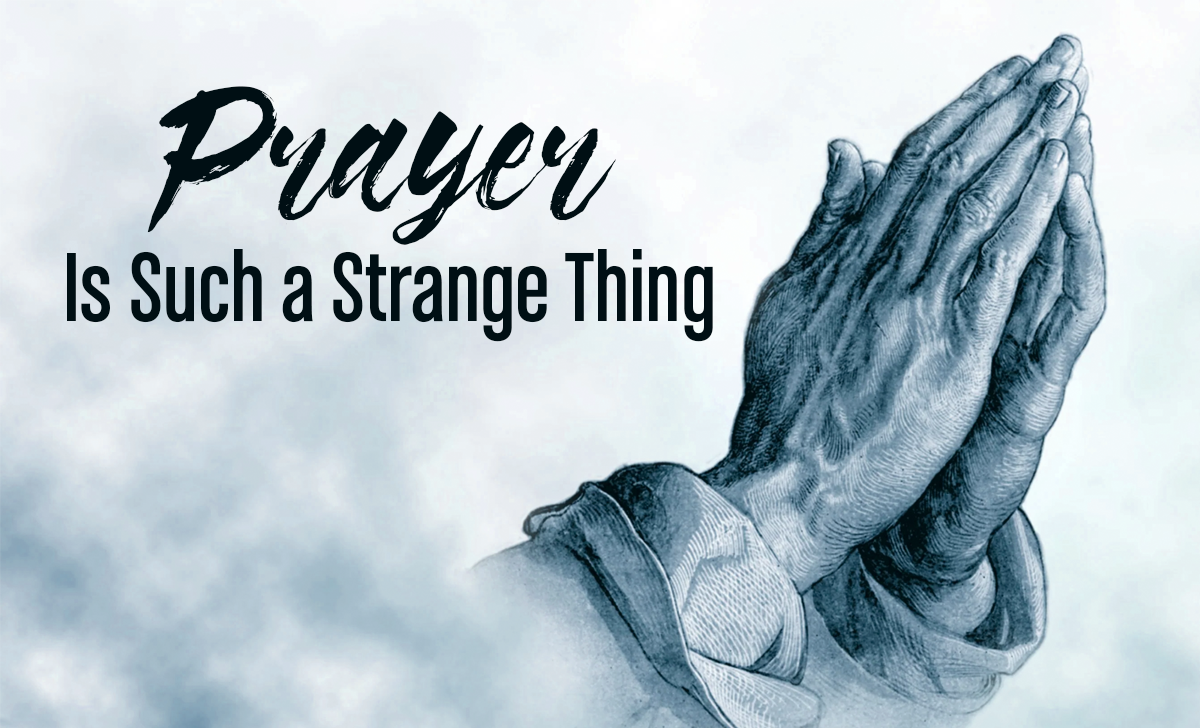
My prayers of late have been focused especially upon my grandson Thomas, the son of our son, Philip, and Tom Lowe’s daughter, Sarah, – both of whom are covenant children of Covenant Presbyterian Church. Thomas is named in honor of his grandpa.
On July 2 he turned 20. A few weeks before he was diagnosed with heart failure. On Thursday and Friday of last week, he underwent a heart transplant operation at Vanderbilt Hospital. We mourn over all that Thomas has physically suffered in this fallen world, rejoice over his receiving a new heart, and weep for those who suffered the loss of a loved one so that our loved one can live.
And so, as I’ve said, our prayers have been especially focused on Thomas, his extended family, and those unknown folks whose painful loss is our grateful gain.
Prayer is such a strange thing.
In 2 Corinthians 1.9-11, Paul tells us about the sufferings he has experienced because of his proclamation of the Gospel. He speaks of the “afflictions” he endured while still in the Roman province of Asia. Clearly, the Corinthians to whom he writes know the particulars of which of he speaks, but we don’t know for certain the history of which he writes. Paul freely admits he and his fellow workers were so “utterly burdened beyond our strength that we despaired of life itself.” In fact, Paul says that they felt as if they “had received the sentence of death.” But next, Paul quickly relates that God “delivered us . . . will deliver us . . . and will deliver us again,” and he and his fellow workers “have set [their] hope [on the Lord].”
Then, in verse 11, Paul asks the Corinthians to help by remembering them in their prayers. Paul’s hope and confidence rest on knowing that the Lord has and will deliver them from the sentence of death, for it is the Lord Who raises the dead. And yet, Paul still calls upon the Corinthians to help him and his fellow laborers through their prayers.
Prayer is such a strange thing.
Instead of stumbling around trying to make sense of all this through my inadequate words and observations, here are some of the comments of Philip Edgcumbe Hughes about these verses:
“Though the Apostle’s hope is firmly fixed on God, yet he also relies on the prayers of his fellow believers on his behalf. . . Their supplications play an important role in his expectations of deliverance.
Prayer is indeed a mystery...It is true that it is God who delivers, and that God stands in no need of human prayers before He can act on behalf of His afflicted servants. Yet there is the manward as well as the Godward aspect of such deliverance, and the manward side is summed up in the duty of Christians to intercede in prayer for their fellow believers who are enduring affliction. But prayer is not a second 'force' in competition with or supplementary to divine grace, for its function and very attitude is precisely to emphasize the utter dependence and resourcelessness of man and the absolute sovereignty of the Father of mercies."
Hughes summarizes his comments with these two sentences that have profoundly impacted me:
“In prayer, human impotence casts itself at the feet of divine omnipotence. Thus, the duty of prayer is not a modification of God’s power, but a glorification of it.”
And so, we come before the Lord in prayer for those struggling with the consequences of living in a fallen world. For those of you who have faithfully held Thomas and his extended family up in prayer, we thank you. We invite you, as Paul does the Corinthians in 2 Corinthians 1.11, to join us in giving thanks for the Lord’s grace and mercy to us, as we have struggled with the ‘whys’ and ‘wherefores’ of all that has transpired in our lives over the past few weeks.







